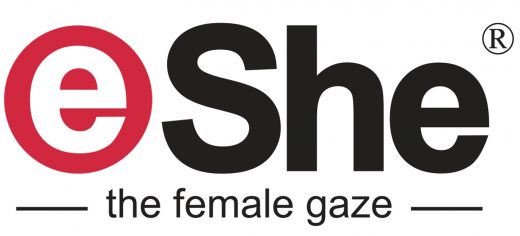Mita Kapur is a busy woman these days, what with her literary agency Siyahi’s Woman Up Summit coming up next month. The festival will celebrate the real-life stories of successful women. It’s just one of the many ‘extra’ activities that her Jaipur-based firm undertakes, such as curating early morning music sessions at ancient temples.
All this besides representing hundreds of writers and books over the past decade or so. It’s a life filled with creativity and culture. And Mita wouldn’t have it any other way.
Born and raised in Jaipur, Mita moved to Delhi to study English at Lady Shri Ram College. “The love of books was ingrained in us since childhood,” Mita recalls, seated in her office with racks of books and journals behind her and spread over her table. Her mother, a doctor, would often take her three daughters along to the local library, and the main source of entertainment for the sisters was curling up with books.

After doing a double Master’s in English and journalism, Mita began working as a journalist at the Free Press Journal in Indore. Marriage necessitated a move to Jaipur, and she had three children over nine years, freelancing as a journalist.
Over the next few years, she got more involved with the writer community, helping budding authors with suggestions, connections and publicity, especially through Jaipur Lit Fest. One day, she met a publisher from Little, Brown and he pointed out that what she was doing was, in fact, a literary agent’s job. “And so I decided to do just that,” says Mita, of how Siyahi was conceptualized.
Set up in 2007, Mita’s first two books were sold to top publishers in less than a month, and things just grew organically from there. “There’s a lot of good writing in India that’s not being noticed. Languages aren’t getting their due,” she rues. “There’s not enough inter-language translation, either.” That’s where she hopes Siyahi will be able to make a mark.

Mita never had to chase writers; even those of the likes of Tabish Khair left their publishers and sought her out. Extremely selective, Mita only takes on three or four authors a year and has so far worked with 146 of them, including Devadutt Pattanaik and Paro Anand, representing almost 500 books in various languages.
“What we’re doing is forging relationships and strategising their entire writing career, not just placing a book,” she explains. With a small team size, Siyahi has strict guidelines for submissions, and stringent filtering criteria.
“People are still reading – internet or no internet,” she says, rubbishing claims that online publishing has eaten into book readership. “We have new formats for reading – there are ebooks, novellas, Terribly Tiny Tales – there’s enough space for everyone. The printed book is not going out of business anytime soon.”

In fact, she says, new research has found that there are increasing readers for both digital publications and physical books worldwide.
She’s also optimistic about the growing interest in thrillers, “and we’re just scratching the surface. There’s also a lot of scope for commercial fiction and deeply researched narratives.”
Her favourite genre is, of course food narratives, and she’s written two herself; The F-Word and Chillies and Porridge: Writing Food. “We have such rich, diverse cuisine in India. Food narratives are a good way to document social trends. I’m definitely going to write more on this.”
Lead image credit: Pixabay. First published in eShe’s September 2018 issue


0 comments on ““The Printed Book Is Not Going Out of Business Anytime Soon” – Mita Kapur”